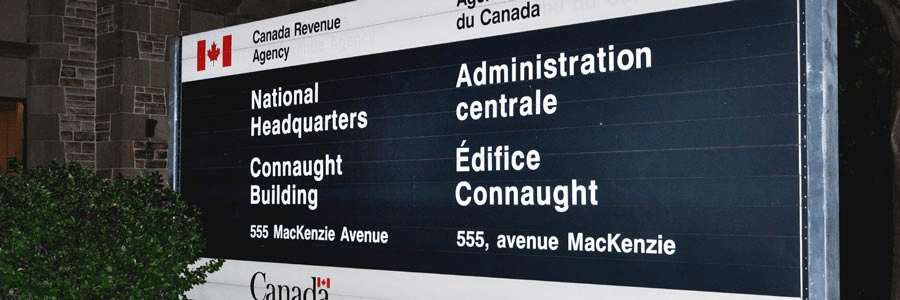Tax basics for newcomers

Original image by Lester Balajadia/Shutterstock.com. © Used by permission
Filing a tax return is one of the most basic things we need to do every year. It may seem complicated when you’re new to Canada, especially if your home country has different rules. But it will become easier once you understand the process and when you avail of the supports available to you.
Tax basics
According to the Canada Revenue Agency (CRA) site, “Tax is a mandatory payment by individuals and corporations to government. It can be levied upon things such as income, property and sales.” An example of this is the tax you pay every time you purchase goods or services. If you have had the chance to check any of your receipts, you may see certain percentages indicated there for Goods and Services Tax (GST) and for Provincial Sales Tax (PST).
But why do we need to pay taxes? We pay taxes because we need the funds to fuel essential government programs such as health care and public education, as well as newcomer supports such as language training, employment assistance, skills training and other immigrant services. Without taxes, we would not have public services and government benefits. It is so important, which is why it is mandatory. Moreover, evading taxes is against the law. Every resident needs to file their returns on or before the April 30 deadline each year. Missing the deadline will subject you to fines, even imprisonment.
Go to the CRA site to know more about changes to taxes and benefits during COVID-19.
Do you need to file a tax return (even if you haven’t earned income yet)?
If you are new resident and have been here only for the last few months of the year, you may not need to file a return. But in order to avail of permanent resident benefits such as the Canada Child Benefit and the GST/HST Credit (Goods and Services Tax/Harmonized Sales Tax), you have to fill-out Form RC66 (and RC66SCH) and RC151 and mail them to the CRA. You will need to provide an estimate of your earnings from your home country (or other countries) in the year/s covered.
When the next tax cycle comes, you will need to file a return even if you did not work. In Canada, filing a tax return is done not only for purposes of declaring income, but for applying to receive basic government benefits.
A complete list of who needs to file can be seen here: Do you have to file a return?
How to file
If you have been living in Canada for a while (beyond a tax cycle), here’s how to file a tax return: First, you will need a Social Insurance Number (SIN). You can get this at any Service Canada outlet (or read the article Essential documents for newcomers to know how to apply for a SIN).
Then, you will need to fill-out the T1 return or T1 General –Income Tax and Benefit Return. Before you start with your form, you may need to gather supporting information (for those who are employed or run a business) or information slips which are usually sent out by February. These include the T4 (Statement of remuneration paid), T4E (Statement of Employment Insurance and Other Benefits), or T5007 (Statement of Benefits). A complete list of these slips may be found here: Information slips.
You can get your forms by downloading and printing them here, or by going to any postal outlet near you, or a CRA tax services office. You can also call the CRA (1-855-330-3305) to request for the General Income Tax Benefit package to be mailed to you.
You can use certified software (some of which are offered for free) to compute your taxes, but you will still have to print the document and mail it to the CRA. As a first time filer, you will not be able to file online using NETFILE (see NETFILE eligibility and restrictions) yet. NETFILE is CRA’s electronic tax-filing service that lets you file directly (online) to the CRA using certified software. However, you can register for My Account and direct deposit after you file your first tax return.
Each part of the form and the instructions on how to complete them may be found on this link: Completing a tax return.
More information
Need more help in filing your tax return? You can contact the CRA directly for your inquiries. If you need assistance in preparing one, community organizations in cooperation with the CRA hold tax preparation clinics called the Community Volunteer Income Tax Program (CVITP). Check this list compiled by MANSO for Free Tax Clinics in Winnipeg (2021). You can also ask your nearest Settlement Service Provider for assistance.
Article updated April 6, 2021.
Community Resources
The Canada Revenue Agency has the following resources in various formats that could help you understand taxation in Canada and how to efficiently file your tax returns:
- Videos and recorded webinars for individuals and families
- Learning materials by module
- Information about My Account and the mobile application MyCRA can be seen on this page: E-services for individuals.
